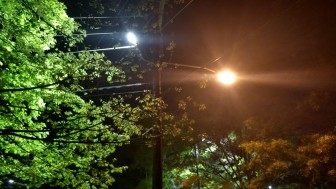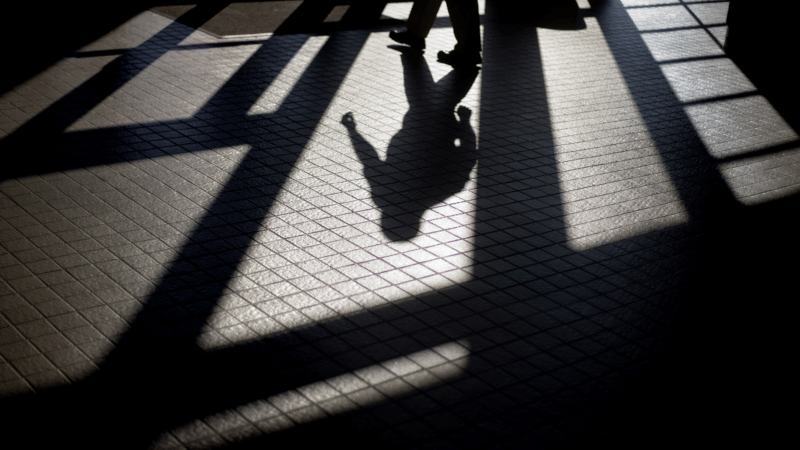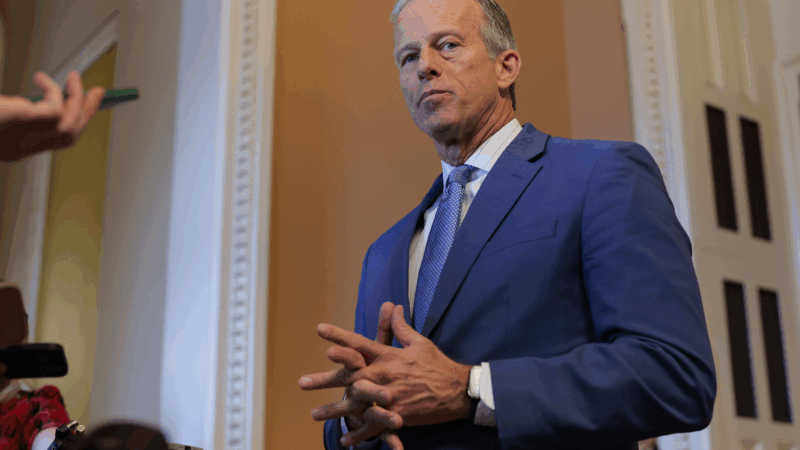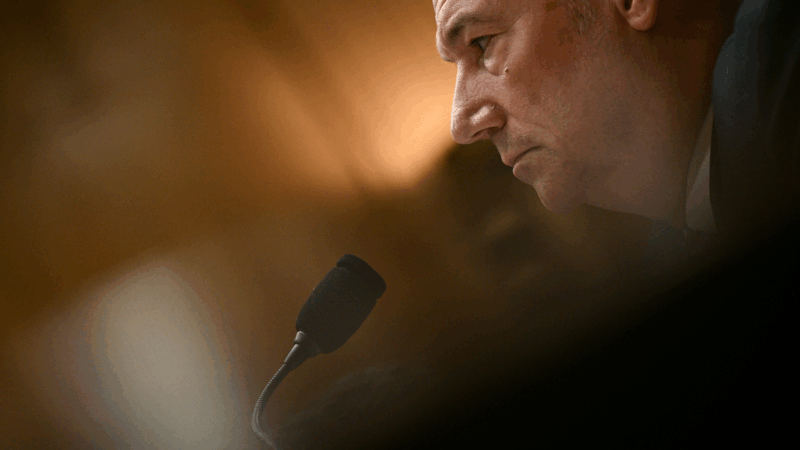Savings Uncertain With Birmingham’s LED Street Lights
Birmingham is getting brighter. The city struck a deal with Alabama Power last year to replace all of its street lights with modern LEDs. It says a key reason for switching to LEDs is the possibility of cutting electric bills by as much as seventy percent. But there’s no guarantee Birmingham won’t end up with an even higher bill than it’s paying now.
The deal has Alabama Power replacing the city’s 30,000 street lights with new, energy-efficient LED lights by December 2018. Birmingham will pay the same price as its older, less efficient lights — about $5,388,000 a year, according to the mayor’s office — for about five years.
In 2021, Alabama Power will reevaluate how much it charges for the lights, though it’s possible Birmingham won’t see any of the savings usually associated with LEDs.
“We’re going to need a little bit of time to see how this pans out,” says Keisa Sharpe, a spokeswoman for Alabama Power. “That’s one of the things that we are going to assess — how these bills are going to shake out and shape up over the long term.”
When asked whether Birmingham could expect to see a lower bill, Sharpe said, “I think that’s speculation at this point. This is very new technology.”
Los Angeles began converting its street lights to LEDs in 2009. The city spent $57 million on the conversion, and saw its annual street light costs drop by $7 million. Since then, cities across the country, like Houston and New York City, have been switching to LED street lights.
I think those costs can be determined,” says Steve Morgan, president of Clean Energy Solutions, a clean energy consulting firm. “Most of them by comparison to cities and towns that have already done this.”
Keeping The Lights On
It seems counterintuitive — how can a light that uses less electricity not save money? In a home, it’s simple — install an energy-efficient light bulb and the electric bill goes down.
But that’s not how street lights work. In most cases, street lights are unmetered, meaning, unlike a house, there is no record of how much energy each light uses. Instead, cities are billed based on three different factors — an estimate of the energy used by each light, an estimate of maintenance costs and the cost of the physical light itself and the equipment that keeps it running.
The details of how a final price is calculated can be opaque, but Morgan says there’s enough information about LEDs to know that they should be saving money. While LED lights do cost more, Morgan says that’s more than made up by the savings in electricity and maintenance costs. Costs can be cut by as much as 65 percent by switching to LEDs.
“Early results from LEDs have been spectacular. There’ve been almost no failures. Less —way less — than one percent,” says Morgan. “If they’re not costing less something is wrong.”
Unregulated
Many cities do not own their street lights. Instead, a power company like Alabama Power in Birmingham, often does. Usually in those situations, the state’s public service commission regulates and determines the price for a power company’s various street light models.
But Alabama Power’s LED lights are unregulated — a rarity in the United States.
“It does happen, but unregulated street lighting tariffs are not common place,” Morgan says.
In 2015, The Alabama Public Service Commission allowed Alabama Power to provide unregulated street lights. This lets Alabama Power set rates for LEDs independently from the commission. Since there aren’t any LED street lights regulated by the Alabama Public Service Commission – only the older, less efficient lights – the only option for cities interested in LED lights from Alabama Power is the unregulated route.
There are benefits to unregulated street lights — prices can be adjusted quickly and as needed. It can take years to update the costs of regulated lights.
“It’s rapidly-changing technology,” says Keisa Sharpe, spokeswoman for Alabama Power. “There are changing costs associated with it so we determined the unregulated side was the best way to deal with that.”
But, Morgan says, the removal of the public service commission’s influence means cities have to be that much more cognizant of what they’re buying into.
“Buyers should beware here,” Morgan says. “The city has to be obliged itself to hold the utility more accountable for the cost.”
Negotiations
It is possible Birmingham won’t save any money when the LED rates are reevaluated. There’s also a chance the rates will increase, as is the case in some cities where power companies own the street lights. Mississippi Power provides regulated LED lights that cost more than some traditional lights.
Alabama Power and Mississippi Power both fall under the umbrella of Southern Company.
If Birmingham is unhappy with what Alabama Power proposes in five years, the power company says the city can always go with another partner.
“Customers always have a choice on this unregulated side,” says Sharpe. “Of course, we would love for them to choose Alabama Power but they have other options in the marketplace.”
But Morgan says there usually aren’t any alternatives when a power company owns the lights. “The only other arrangement is if the utility allows the city to buy the street lights from them. There’s no other third party that can just come in and take them over.”
Alabama Power says there are other entities the city could turn to, though they couldn’t offer examples.
Previously, the city did own about 7,000 of the 30,000 street lights in Birmingham, though part of the arrangement with Alabama Power includes the city relinquishing ownership of those lights to the power company.
“We were limited in many different ways,” Sherri Nielson, executive administrative assistant to the mayor says. “We would not have been able to make an LED conversion on the 23,000 poles they own.”
Nielson says the city will still have leverage when it renegotiates the cost of the lights — Alabama Power works with Birmingham on other projects throughout the city. Neilson says she is confident prices will be lower because Alabama Power is a reliable partner.
“Birmingham and Alabama Power work closely together,” she says.” We both make each other’s work life better, easier. If one partner falls out, the other might as well and then we don’t have such a good working relationship.”
Safety Lights
Saving money is a huge part of the appeal of LED lights, but there are other reasons cities find them so attractive.
The fact that they don’t burn out as often as traditional lights means street corners can spend less time in the dark. Improved lighting is often touted as a way to reduce crime.
“Our police, who are required to provide safety to our citizens, they want better lighting. And they like these lights,” says Nielson. “And if they feel that there job is made a little bit easier by these lights, then the safety goal has been met.”
However, there are mixed results when it comes to reducing crime with improved lighting. Researchers from the London School of Hygiene and Tropical Medicine found little correlation between crime and lighting after street lighting was reduced at night in England and Wales.
A follow-up study did find, however, a change in the perception of safety when lighting was reduced. In other words, better lighting can make a neighborhood feel safer and, subsequently, give a bump to the neighborhood’s economy, as consumers feel more comfortable going out at night.
Payback
The main selling point for the deal is that Birmingham gets improved, modern lights without having to take on anymore more debt. Alabama Power is handling the cost and logistics of the conversion.
“So we win,” says Nielson. “We win upfront. We win, you know, for five years and longer because we’re going to have lights that work and our neighborhoods will be safer. So I don’t – I don’t see a downside for Birmingham.”
Other cities see any immediate debt outweighed by future savings. Knoxville, Tennessee is considering a plan to convert the city’s approximately 29,000 street lights to LEDs at a cost of $13-to-17 million. This includes about $4.8 million to pay Knoxville Utilities Board for the “stranded cost” — or the remaining value of the older street lights the LEDs will replace. Birmingham did not have to pay any stranded cost as part of its deal with Alabama Power, though Knoxville would no longer pay monthly to lease the street lights.
Erin Gill, the director of sustainability for Knoxville, says the lights will pay for themselves in 10 years. After that, the city expects to save about $2 million a year, cutting the city’s street lighting bill in half. The reliability of the cost savings LEDs produce is why Gill is comfortable suggesting the city take on the debt.
“The technology has become so much more mature and so with that comes pretty predictable savings,” Gill says.
Without the savings, Gill says, “I don’t think we’d be as interested.”
Israel accuses two of using military secrets to place Polymarket bets
The Tel Aviv indictment is the first publicly known instance of people being accused of leveraging military secrets to place bets on the popular prediction market.
Report finds children with mental health diagnoses often incarcerated instead of getting treatment
Dozens of juvenile detention centers in 25 states reported holding children weeks or months as they awaited space at long-term psychiatric treatment facilities, according to a new survey.
Chloe Kim’s protégé foiled her Olympic three-peat dreams. She’s celebrating anyway
Korea's Gaon Choi, 17, rebounded from a hard fall to win gold — and end her role model's historic bid for three in a row in the Winter Olympic halfpipe.
DHS expected to shut down as immigration talks falter
Senate Democrats blocked two Republican-backed measures Thursday to keep the department open, including a short-term funding extension for two weeks as negotiations continue.
ICE conducted 37 investigations into officer misconduct in last year
The disclosure from the agency's acting director came after immigration officers shot two U.S. citizens, intensifying questions about ICE officers' tactics, training and use of force.
54-year-old U.S. curler sets new American Winter Olympics age record
Rich Ruohonen has tried to get to the Olympics for almost 40 years. He finally got his chance, taking to the ice at the Milan Cortina Games representing the U.S. on Team Casper for curling.







